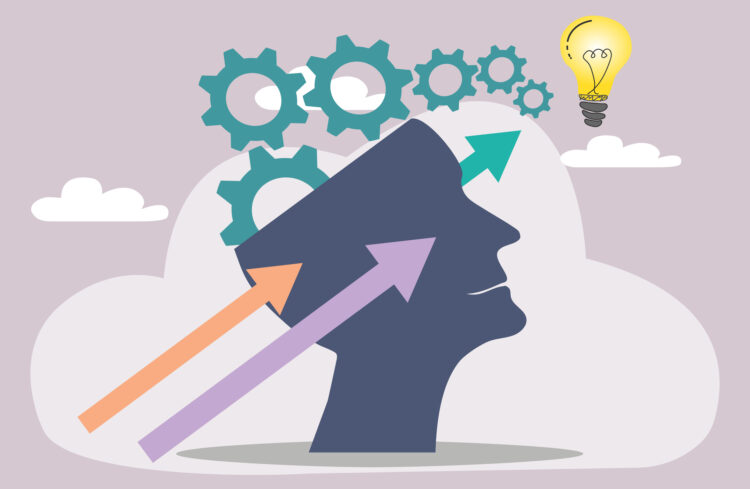Last Updated on April 2, 2023 by Editors Desk
Leadership requires more than just technical skills and knowledge; it also demands a high level of emotional intelligence. Emotional intelligence, or EQ, is the ability to recognize and manage your own emotions, as well as the emotions of others.
A leader with a high level of emotional intelligence can effectively communicate, build strong relationships, and inspire their team. In this article, we will explore five ways to enhance your emotional intelligence for better leadership.
By focusing on self-awareness, self-regulation, empathy, social skills, and mindfulness, you can develop a deeper understanding of your emotions and those around you. We will provide practical tips and strategies to help you cultivate these important qualities and become a more effective and inspiring leader. Let’s dive in!
Being a successful leader requires more than just having good business sense or being able to make tough decisions. It also requires having strong emotional intelligence skills. Emotional intelligence is the ability to recognize and manage your emotions, as well as the emotions of others.
What is Emotional Intelligence?

Emotional intelligence (EI) is the ability to understand and manage one’s own emotions, as well as to recognize and empathize with the emotions of others. It encompasses a range of skills, including self-awareness, self-regulation, empathy, social skills, and motivation.
Self-awareness is the ability to recognize and understand one’s own emotions, thoughts, and values. Self-regulation is the ability to manage and control one’s own emotions, impulses, and behaviors. Empathy is the ability to recognize and understand the emotions and perspectives of others.
Social skills are the ability to communicate effectively, build and maintain relationships, and work collaboratively with others. Motivation is the ability to use emotions to drive and achieve goals.
Emotional intelligence is a critical component of effective leadership. Leaders who possess high levels of emotional intelligence are better able to understand and manage their own emotions, as well as those of their team members.
This allows them to create a positive and productive work environment, build strong relationships with team members, and make informed and effective decisions. Additionally, emotionally intelligent leaders are better equipped to handle challenges and setbacks and to adapt to changing circumstances.
Why is Emotional Intelligence Important for Leadership?

Emotional Intelligence (EI) is a critical aspect of effective leadership. Leaders with high EI possess a set of skills that enable them to connect with their team members, understand their needs and emotions, and respond to them in a constructive and empathetic way.
When leaders can communicate effectively and empathetically, it helps to build trust and create a positive work environment. This ultimately leads to increased productivity, better teamwork, and higher employee morale. Moreover, leaders with high EI are also better equipped to manage conflicts, make sound decisions, and adapt to changing circumstances.
As a result, they are more likely to achieve success in their roles and lead their teams to success as well. In short, EI is crucial for leadership because it allows leaders to connect with their team members, understand their needs and emotions, and respond to them in a way that is constructive and empathetic.
Emotional intelligence is crucial for leadership because it allows you to effectively communicate with and lead others. A leader with high emotional intelligence can motivate and inspire their team, build strong relationships, and effectively manage conflict. Additionally, leaders with high emotional intelligence are better equipped to handle stress and make tough decisions.
5 Ways to Enhance Your Emotional Intelligence for Better Leadership:

- Practice Self-awareness:
Self-awareness is the foundation of emotional intelligence. It involves understanding your own emotions, as well as your strengths and weaknesses. To improve your self-awareness, take time to reflect on your thoughts and feelings. You can also ask for feedback from others to gain a better understanding of how you are perceived.
- Improve Self-regulation:
Self-regulation involves managing your emotions and responding appropriately in different situations. To improve your self-regulation, try to identify your emotional triggers and find healthy ways to manage them. This could include practicing mindfulness techniques or engaging in physical activity.
- Develop Empathy:
Empathy involves understanding and sharing the emotions of others. To develop empathy, practice active listening and try to put yourself in someone else’s shoes. This will help you to better understand their perspective and respond in a way that is compassionate and understanding.
- Enhance Social Skills:
Social skills involve the ability to communicate effectively with others and build strong relationships. To enhance your social skills, focus on developing your communication and networking abilities. This could include taking public speaking courses or attending networking events.
- Cultivate Mindfulness:
Mindfulness involves being present and fully engaged in the present moment. To cultivate mindfulness, try to focus on the present moment and let go of distractions. This could include practicing meditation or taking breaks throughout the day to recharge.

Conclusion
In conclusion, enhancing your emotional intelligence is crucial for becoming a better leader. By improving your self-awareness, self-regulation, empathy, social skills, and mindfulness, you can communicate effectively, resolve conflicts, make better decisions, and build stronger teams.
It is essential to practice empathetic listening, embrace vulnerability, and cultivate emotional agility and competence to develop stronger interpersonal relationships and promote personal growth.
By incorporating these five ways to enhance your emotional intelligence into your daily life, you can become a more effective and inspiring leader. Remember to always reflect on your emotions and seek feedback from others to improve and grow continuously.



